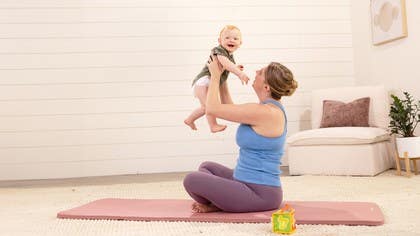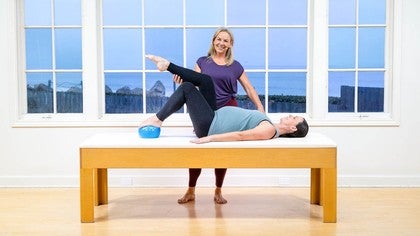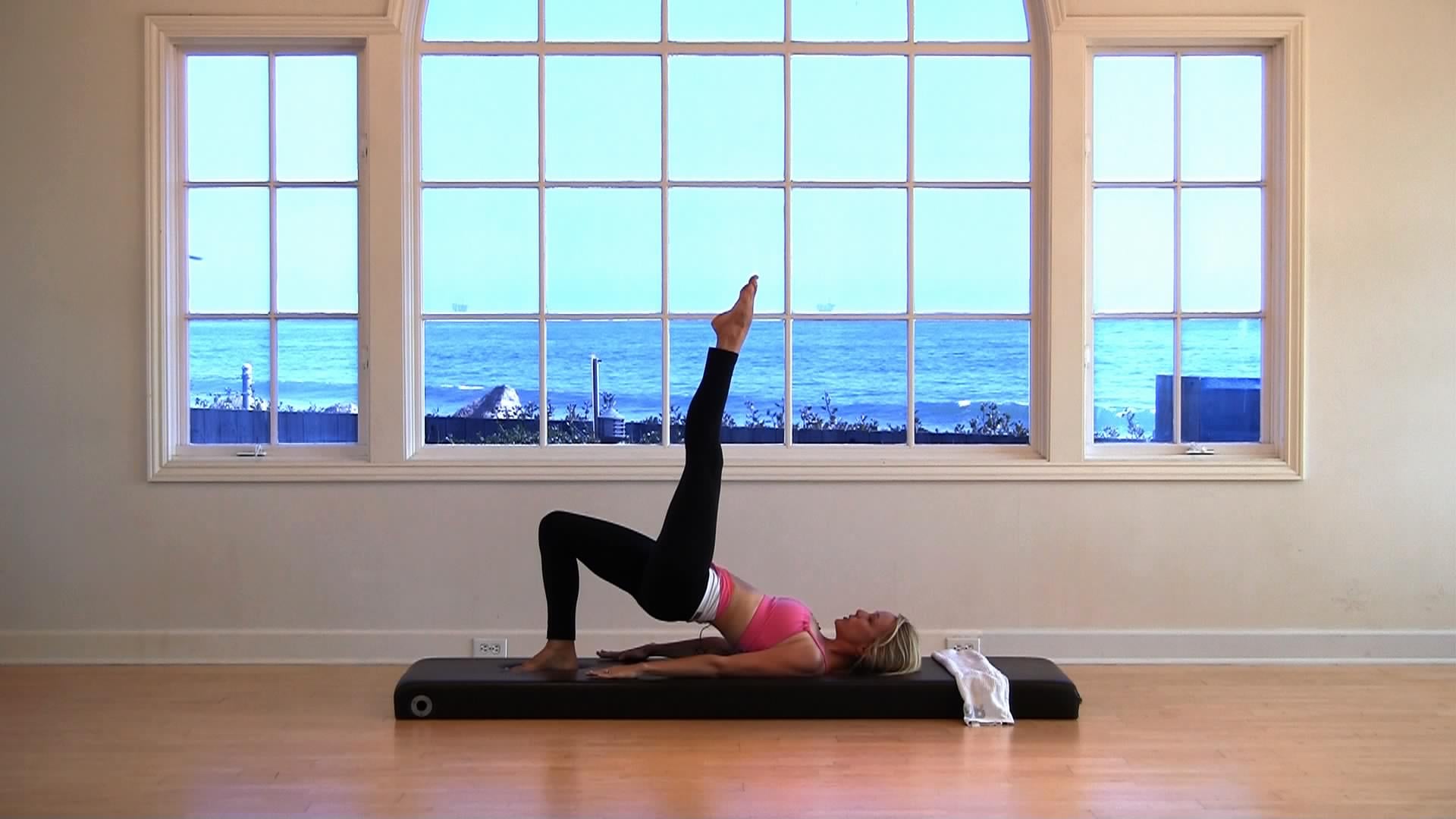
6 Ways to Manage Postpartum Stress
When you’re pregnant, for better or for worse, you’re suddenly the center of attention. How are you feeling, everyone wants to know. Have you felt that first kick yet? What have you been craving? Put your feet up—you deserve it! And then baby comes, and suddenly it’s all about this tiny new person: How’s the baby doing? Is she sleeping through the night yet? Is he a good feeder?
The inquiries about you, and your miraculous baby-making body, have dwindled at a time when you need support the most. Your hormones are raging, your sleep is minimal, your body is in recovery mode, and you have a starving, crying newborn to coddle and care for 24-7.
That’s why postpartum stress is such a common issue new mothers face. “It’s the anxiety, stress, and general fogginess that so many new moms experience in the weeks or months after childbirth,” explains Zayna Gold, the founder and director of Boston Body Pilates. “You may feel out of control, agitated, and overwhelmed by your new responsibilities, all the while feeling guilty for having any of these negative emotions in the first place.”
“Postpartum stress is somewhere between the ‘baby blues’ and the more severe postpartum depression” adds Leah Stewart, MS, of LiveLifePilates in Costa Mesa, CA. “Mothers experiencing postpartum stress can generally get through the day in caring for themselves, their baby and the household, but they often do so with heavy feelings of doubt and disappointment in the experience of motherhood as a whole.”
If you’re thinking, this sounds like me, without judgment of what you think you should be able to accomplish during this time, try one or more of these strategies to make you a priority, even if you have just minutes to spare. The more balanced you feel, both physically and emotionally, the better you’ll be able to care for your new baby.
SELF-CARE TIP #1: JUST MOVE
Postnatal exercise is one of the most effective ways to reduce postpartum stress, Gold says. Her advice? “Make a list of three types of movement activities that are accessible for you,” she recommends. “Examples can be taking a walk with your baby, getting out your mat for some postnatal Pilates or yoga, or even dancing around in your underwear to your favorite music.”
Don’t worry if you can’t commit to a full workout, Gold adds. “Getting at least 10 minutes of mindful movement every day will help you relieve anxiety, get better sleep, and reduce the normal stress of having a brand-new baby to learn how to care for.”
Stewart agrees. “When a mother can exercise (gently, of course, as she is newly postpartum), she creates the space to feel good, connected, rejuvenated and invigorated with increased blood circulation, breath and joint mobility. She is doing something to [ultimately] better care for her baby and to cope with the natural yet unflattering challenges of motherhood.”
SELF-CARE TIP #2: TRY POSTNATAL PILATES SPECIFICALLY
Although any form of movement is beneficial, Pilates, in particular, can be cathartic. “Pilates is all about connection, focus, acceptance, and breath,” Stewart points out. “These elements are extremely helpful to a new mother in her postpartum transition.”
Add to that, Pilates exercises are initiated from a strong and balanced core, Gold says. “Your core is made up of four muscles: the pelvic floor, the transversus abdominus, the diaphragm, and the multifidus. Each of these muscle groups plays an important role in recovering physically from childbirth and also in regaining your sense of emotional equilibrium.”
Some of Gold’s favorite Pilates exercises for the post-pregnancy body include: Seated Pelvic Floor Engagement; All-Fours Chest and Tricep Presses; Side-Lying Leg Lifts and Clams; and Standing Squats.
Or try Stewart’s super-gentle movement to lengthen the spine while opening the shoulders and chest : Stand tall, and inhale, circling your arms out from the sides of your body and overhead. Exhale slowly to return to start. Let your arms come back down to your sides. Do 3–5 repetitions.
Want more ideas? Pilates Anytime has loads of postnatal workouts to choose from.
SELF-CARE TIP #3: TAKE A BREATHER
A few deep breaths can, quite literally, breathe new life into your body. “As a mother of three little boys,” Stewart says, “I always tell new mamas that breath and gentle movements are going to be your liferaft during the early postpartum period. You have to make it happen every day, because that self-care creates a solid foundation for healing, acceptance, reflection, calm, joy, confidence, sensitivity, and connection.”
Stewart offers the following breathing exercise to combat fatigue and boost energy: Sit cross-legged on a pillow or cushion. Close your eyes and breathe in as much as you can, gently allowing your belly to expand. Exhale completely, allowing all the breath to exit. Repeat this several times, focusing on how much air you can inhale and exhale, and feeling how your body moves when you do that.
SELF-CARE TIP #4: STAY CONNECTED
Other mothers can be a huge source of support, especially if it’s your first time. “If you feel isolated and don’t know any other new moms, go to your local playground, a children’s museum, even the local coffee shop,” advises Gold. “New moms are eager to meet each other, and you can strike up conversations that will help you realize you aren’t alone.”
SELF-CARE TIP #5: INVOLVE YOUR DOCTOR
Gold suggests looping in your baby’s pediatrician or your gynecologist about any anxieties you might be experiencing. “They will be able to give you resources in your community,” she says, “and reassure you that your feelings are completely normal.”
SELF-CARE TIP #6: CALL IN REINFORCEMENTS
Taking care of a newborn is a full-time job, to say the least. You don’t get much downtime, but you can make the most of it by enlisting the help of others. “When your baby naps, it is important that you take one time every day to do something for yourself,” Gold advises. “Ask for help—from sitters, relatives, your significant other. People are eager to help you and are there for you when you ask.”
The presumed joy you think you “should” feel when baby finally arrives can be overshadowed by unexpected feelings of inadequacy, stress, anxiety, and even depression. Taking just a minute or two to try one of the above methods can help you take in each moment as it is, without judgment, and reduce postpartum stress.
Comments
No comments yet. Be the first!















You need to be a subscriber to post a comment.
Please Log In or Create an Account to start your free trial.